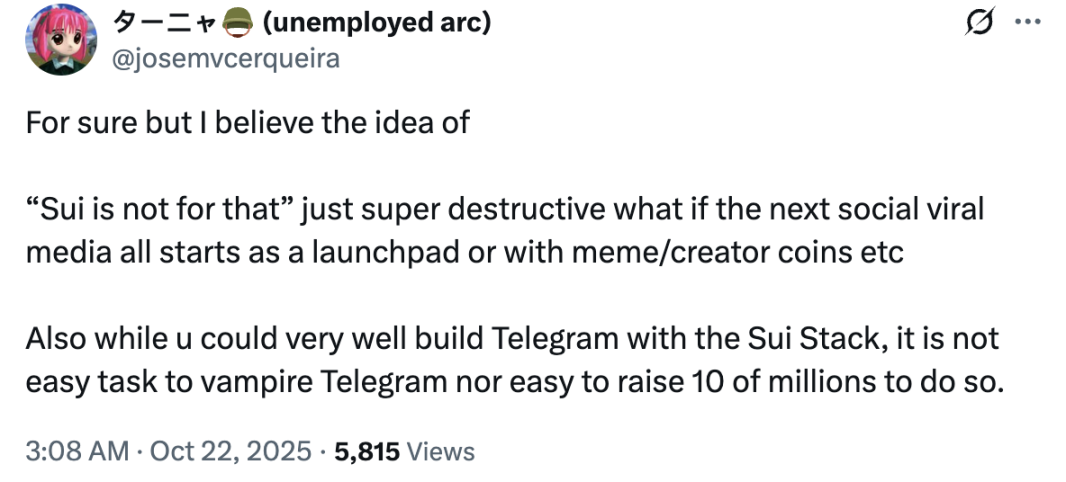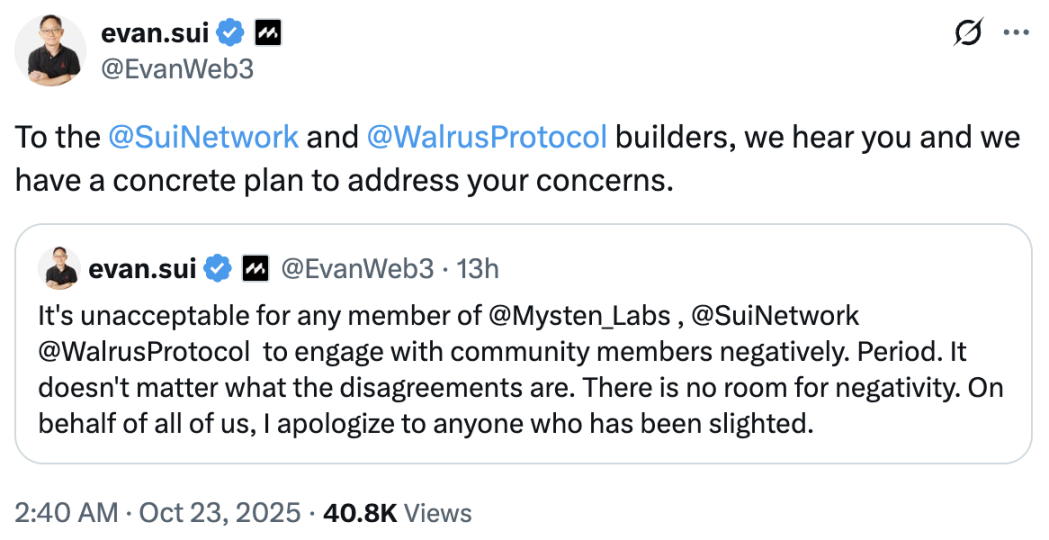By Eric, Foresight News
On October 21st, the marijuana cultivation simulator Addicted posted a long tweet complaining about the unfair treatment he's received in the Ethereum and Base ecosystems. He stated that the Ethereum ecosystem has a "top-down" culture, where if you're not part of the core circle or not developing products approved by the core circle, you receive no support. Addicted believes there's a serious disconnect between developers and users within the Ethereum ecosystem. Most developers disregard speculation and focus on developing products they believe are best, rather than allowing users and the community to spontaneously shape trends.
After switching to Solana, Addicted's peak revenue reached $3.5 million in the first 48 hours. Furthermore, the Solana Foundation proactively provided support to help the team promote their product. They didn't judge the quality of applications, but instead allowed developers to experiment. This open environment surprised the Addicted team and brought them great rewards.

In response to this, a user with the X handle @josemvcerqueira, a member of IPX Labs, a Web3 solutions provider for the Move ecosystem and a developer of the Sui ecosystem meme/launchpad project, agreed and tactfully stated that Sui also has a problem similar to the Ethereum ecosystem in judging the quality of projects based on its own preferences.
Perhaps having also experienced some setbacks in the Sui community, user allfather.sui, the founder of Nexa, former member of Martian Wallet and Polynomial, and with the handle @defi_or_defuck, also took the opportunity to complain. He said he had heard or seen remarks like "Sui is not for that" or "if you want this, go to Solana and BSC" in the Sui ecosystem, and believed that such remarks that drive away developers and users will only stifle the motivation of builders.
These complaints quickly drew a barrage of criticism from die-hard fans. A user with the handle @0xairtx took a particularly extreme approach, claiming the two individuals making the comments should be ashamed of their comments because they were only interested in issuing tokens, not developing products. Sui's stack was designed to facilitate product development. This user argued that Sui isn't a degen chain, but rather a "chain designed to restructure the internet," and therefore shouldn't support these "meaningless" applications.
Perhaps there really is a preference for app types. Rohan Handa, a member of the Deals Team at Mysten Labs (the company that developed Sui), replied to this die-hard fan's comment, saying, "They are actually very smart, they know everything." He implied that those who complain about the atmosphere in the Sui community actually know why they are unpopular.
At this point, another Sui community member sarcastically remarked, "If they know everything, why don't they use Sui to develop the next Telegram or GMail, which no one will use, instead of developing a user-oriented DApp?" This criticism directly pointed out that Sui had no idea where the real users of public chains came from, and arrogantly believed that such a "politically correct" application would actually be used. This statement directly led to Rohan Handa's classic response:
I don’t know the last time Netflix blamed AWS for not helping them grow.
This arrogant attitude sparked discontent among many community members, and the tweet quickly garnered over 20,000 views, with the comments section filled with criticism. Everyone seemed to believe Sui's comparison to AWS was overestimating himself. In the niche industry of Web3, public blockchain foundations should support ecosystem projects and foster mutual success. A user with the handle @0xiiptolemy was even more blunt, stating, "Sui paid Binance 9% of the total WAL volume to get his token listed on the exchange. If Sui could do anything, why would he spend millions of dollars on Binance's help?" Also imitating Rohan Handa's tone, allfather.sui said, "AWS employees wouldn't tell Netflix users to use Google Cloud products if they want to use Netflix. You can't talk about building the next internet and then be picky about what the next internet needs."

After realizing that a team member had made inappropriate comments, Sui co-founder and CEO Evan Cheng apologized to everyone who was slighted and stated that no matter the disagreement, any member of Mysten Labs, Sui, or Walrus engaging in negative communication with the community is permitted. Evan Cheng then stated that he would provide Sui and the Walrus builders with a concrete plan to resolve the issue.
Evan Cheng's quick public relations response garnered considerable support in the comments section. Some community members expressed that a significant gap still exists between the foundation, builders, ambassadors, and the community, but said that if this gap could be bridged and communication improved, the Sui ecosystem would be more appealing.
Should foundations intervene in the direction of development?
Sui Ambassador @MindfrogCrypto publicly stated on X that Sui ecosystem builders often complain about low liquidity and a lack of retail users. The foundation's funding tends to favor "serious" projects (such as infrastructure and DeFi), while meme/gaming projects feel marginalized. Furthermore, the Sui community often engages in "purity debates," such as whether BSC-style low-barrier projects are welcome.
Discussions like this are common in any public blockchain ecosystem. Developers and project teams don't want the foundation to show obvious bias and support the development of a wide range of projects. Meanwhile, the foundation is concerned that if the trend shifts toward overly speculative projects, it could create negative stereotypes and impact long-term development. From this perspective, Sui's support for so-called "serious" projects is justified.
Analogously, the government will naturally support the development of physical and high-tech industries because these create jobs, generate incremental markets, and drive technological advancement. However, this doesn't mean suppressing street barbecue stalls. Rather, it means ensuring that all industries have room to thrive and develop, thereby promoting urban inclusiveness. For Sui, the foundation should provide unbiased, basic support for entrepreneurial directions and trends that emerge spontaneously in these communities, while allocating more resources to projects that have higher technical or scalable barriers to entry.
Solana's ability to rebound from its 2022 lows is inseparable from the support of the foundation. The Solana Foundation doesn't favor "serious" projects. Even when Meme tokens were trending, it didn't overwhelmingly support Meme, but instead promoted the development of other projects. This impartiality may be the most important thing the Solana Foundation has done. The Ethereum ecosystem's current hot spots, such as re-staking, are not very friendly to retail investors, which has caused it to lag behind Solana in recent years.
For Sui, there is no problem in continuing to support "serious" projects, but after being rewarded in terms of coin price due to the high quality of ecological projects, Sui should not fall into path dependence. Instead, he should enrich the types of ecological projects and improve ecological inclusiveness. He can also bring in more ordinary users and liquidity, and solve the problems that have always existed.
Barbecue stall owners aren't troubled by the lack of industrial parks, but they are worried about the lack of planned locations. As one user commented on Rohan Handa's post, "Responsibility and support are two different things. You've misunderstood your boss."







